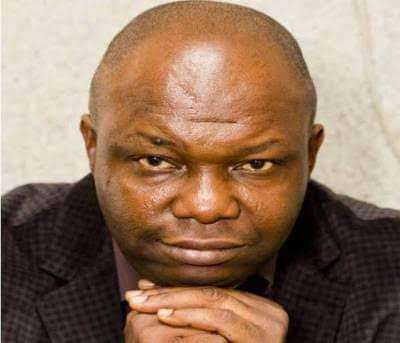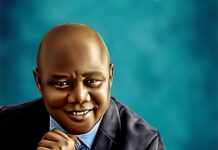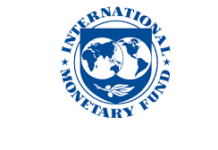Tinubu as “Sobia” in need of Oluganbe leaf, by Festus Adedayo
Initial applauses from Bretton Woods and some local economists that greeted the economic reforms of the Bola Tinubu presidency were deafening. The reforms were termed bold and courageous. The most surgically painful of them, which drilled deep down into the marrows of Nigerians, was the removal of fuel subsidy. In a country that is almost totally dependent on PMS, the unbearable pains of the people reached ear-shattering decibel. Cars disappeared from the roads. Costs of transportation are tearing the roof, with rife social dislocations. Rates of crime have since been on the increase, with rising matrimonial disorder figures. Local political party panegyrists and their hirelings, in response to the harrowing pains that accompanied the policies, lapped up the time-worn cliché of “Rome was not built in a day” as requests for national patience. Why not allow a window into the counterpoise of that cliché, to wit that Rome was not destroyed in a day? With my eyes of metaphor, I see an unfolding disaster of Sobia that is afflicting villagers and townsmen.
Africa developed several myths and fables in response to guinea worm. Among the Yoruba who named it Sobia, it was presumed to be the wrath of Sanpona, a dreaded deity. On the surface, Sobia’s presentation looks not dissimilar from the perceived strike of Sanpona which usually came as smallpox pestilence. Coupled with the fact that it occurred majorly in the dry season, this made the ascription of the Sobia to Sanpona deity logical. The initial clinical manifestations of guinea worm are often a constellation of symptoms. It begins with headache, body ache, fever, itching, swelling and rashes. Then, pain in a localized spot of its attack comes as forerunner of a blister. High temperature, especially accompanied by restlessness, then sets in
Growing up, yours sincerely also suffered from Sobia. Days – epidemiologists later said it is 14 days – after returning from our oft dashes to streams with amateur hooks to catch tiny fishes, and upon contact with infected water through bathing, washing or fetching infected water, we suddenly went down with what our parents, borne out of repeated experience, immediately and magisterially diagnosed as guinea worm. Most times, the feet of the disease’s host suddenly appeared reddish and swollen. By then, said epidemiologists, adult female worms, which grow as long as up to one meter in length, develop inside the human subcutaneous tissue and when the worm releases its larvae, an ulcer develops on the host’s skin.
To combat the Sobia, native doctors found herbal remedy in the Oluganbe leaf. It is usually boiled and its water used to clean the ulcer. The leaves are then used as plaster on the burst worm site. So, as tribute to the rescue that the Oluganbe leaf provides those who suffer the strike of Sobia, a traditional Yoruba aphorism was invented as salutation to the Oluganbe. They say, ti sobia y’o ba d’egbo, Oluganbe laa ke si, translated to mean, before guinea worm transmutes into a dangerous sore, Oluganbe is always called to the rescue. Beyond the strike of the Sobia, this wise saying has assumed a broader context as call on those who have ears, upon noticing early signals of an impending disaster, to immediately seek timely solutions to it.
Until its near total rout in this century, guinea worm, with the botanical name dracunculiasis, was a dreaded tropical disease. Epidemiologists reckon that, just like its Siamese, tuberculosis, guinea worm had been with man for over 3000 years. Evidence gathered through surviving documents from physicians of antiquities even claim that man had suffered its affliction since 1000 BC. It was a disease that afflicted poor rural areas with no safe drinking water, from South Africa, through the Middle East and down to West Africa. During the 19th and 20th centuries, guinea worm’s widespread strike was such that it afflicted as much as 48 million people yearly. This figure nosedived to 3.5 million patients in 1980 but, through the intervention of various world agencies, this waterborne disease was in 2021 reduced to about 15 cases. Today, it can only be found in countries like Chad, Ethiopia, Mali and South Sudan.
In his 55 days in government, like that Oluganbe aphorism, we should begin to conduct initial examination of the psychology and the emerging psychosis behind the operation of this government. If we do this, we will know what lies in wait for us. For instance, searchlight on the thought process behind the subsidy removal revealed that, rather than the “prepared to rule” and the “methodical and process-inclined” man that Tinubu had been touted to be, a policy of such monumental, sweeping and lives-threatening magnitude as removal of subsidy from fuel, was taken off-the-cuff and inflicted without the rigour needed. At his inauguration on May 29, Tinubu’s prepared speech had referenced the administration’s preparedness to “phas(e) out” subsidy which he said was in tune with his “Renewed Hope 2023” manifesto. Indeed, on its page 37, it says “we shall phase out the fuel subsidy.” This is taken to mean that government’s plan in the removal of subsidy was incremental. However, all of a sudden, while the speech was being read, the president announced that “the fuel subsidy is gone.”
Tinubu has been severally praised for the courage to take this decision. In the bid to stave off criticisms against it for lacking the governmental balls, the Muhammadu Buhari government claimed it sidestepped subsidy removal because it would have heralded electoral calamity for the APC. In a subsequent trip to France, asked whether it was impudence, boldness or courage that birthed the subsidy removal, Tinubu had told the Nigerian community in Paris that, “When I got to the podium, I was possessed with courage, and I said, ‘subsidy is gone.’”
Here, we will notice the onset of Sobia. What actually possessed the president at the Eagle Square on May 29? The first thing that this venture will yield is that, we will see the glaring equivocation in his usage of the word “possess.” Courage, being a positive attribute, does not harbor the negative portent associated with “possessed.” To be possessed is to be suddenly controlled, gripped and seized by an evil spirit. Did the president mean to convey the hidden metonym of what actually seized him on that day, to wit the draconian spirit of a totalitarian or a despot?
Read Also:
In what has turned out an ad-lib pronouncement, which the Punch newspaper, in a highly applauded editorial comment last week, labeled a “shoot first and ask questions later” approach, Tinubu suddenly abrogated the joy of millions of Nigerians through a kick-and-follow economic policy of subsidy removal. Great as that policy is, it apparently never went through the crucible of critical assessment or a well-itemized provision of succor to its intended recipients. That was why, when the cries of its resultant pain became unbearable, government hurriedly rolled out plan to pay N8000 to 12 million poor Nigerians. Bayoneted on all fronts for the policy’s tenuousness, government then announced plans to have it reviewed. The Punch editorial said “emerging evidence shows that the administration neither made preparations, nor undertook a thorough diagnosis of the existing conditions in the economy” before yanking off petrol subsidy. Within this time, the CBN also floated the naira, with the two policies standing as manifestations of the president’s laissez fare economic inclination of unfettered free market economy. As the newspaper noted, “reforms and the courage to initiate and see them through require meticulous planning, preparation, and fallback measures to absorb the shocks and protect critical economic sectors, and the vulnerable sections of the polity.” Which Tinubu never had.
Now, the euphoria of election, swearing in and ancillary make-believe fripperies of the presidential office are evaporating. It is assumed that with this reality dawning on them, Nigerians will be developing the right frame of mind to take critical look at a number of actions that have been taken in Tinubu’s 55 days in office. Some of them look like an imminent guinea worm affliction which may necessitate calling on the Oluganbe.
First is the manifestation of a totalist, personalist traits of power around the president. Scholars of authoritarian and totalitarian regimes have spoken of some regime features which, if found in a new government, could be dangerous indicators. One of such is that authoritarian and totalitarian regimes try to fuse everything and everyone under their personal control. The only distinguishing feature between a military autocracy and democratic government is the legislature. They both had the judiciary. We all remember the dust provoked by Aso Rock’s struggle to ensure the election of a pliable senate president, Speaker of the House of Representatives and leadership of the National Assembly. It is not an understatement that, though we may not have the tactless pronouncement that the legislature under Akpabio would approve every request brought by Tinubu like the previous senate did, the bendable lot in parliament today will recreate the Ahmed Lawan prototype. Already, the Senate President has begun to wear the Tinubu-like cap, trying to mimic the president’s appearance. He has literally carved a graven image of the president which he worships daily. Not even Lawan, in his genuflecting senate presidency, did this. And the president seems to enjoy the drama. Because it is his turn. Emilokan.
To follow in tow is a firm grip on and an APC that is solely an appendage of the presidency. Abdullahi Umar Ganduje, the 74-year old ex-Kano State governor, whose alleged dollar bribery roulette gathered notoriety a few years ago; money said to have been stuffed inside the enveloping comfort of the babanriga, is rumoured to be the lucky fiddle. Ganduje would only be too happy to carry the president’s spittle. Having learnt the ropes from Olusegun Obasanjo’s seemingly democratic route to despotically squeezing resignation letters from PDP chairmen during his government, Tinubu was said to have walked this path too to upstage the stumbling block that erstwhile APC chairman, Abdullahi Adamu, posed to him. The road is almost totally cleared of all thorns and briers now.
As showcase-worthy as the Lagos governance succession model is, critics have looked beyond this superficiality to decipher a strong tang of despotism and totalitarianism in it. It is also rumouredly flavoured by cultic abidance by the oath of fidelity to a regime of funneling of state funds into private purses. In Tinubu’s Lagos, what is called the Babasope syndrome operates. No one can wriggle into the echelon of political or governmental responsibility except the Fuhrer permits. It is a personality cult, a political buccaneer of totalitarian power.
Nigerians believe that despotic and totalitarian governments cannot thrive in their country. The collapse of the Ibrahim Babangida and Sani Abacha governments are cited to reinforce this. More importantly, despotism and totalitarianism usually occurred in military regimes. Fidel Castro of Cuba and General Alfredo Stroessner of Paraguay are rulers who personified those government types. Same for Hitler, Mussolini, Stalin and Mao. Totalitarians and despots may not, like Castro, possess accoutrements of power like fancy clothes, wealth or philandering liaisons. Under Stroessner, one of the key criteria for securing government employment was political affiliation. The Paraguayan bureaucracy under Stroessner was an enormous patronage network for loyal Colorados. Cronyism and corruption which his government symbolized were essential components of totalitarians which bound subordinates to Stroessner. Already, a group which called itself South West APC Support Group (SASG) is calling attention of the world to cells and layers of patronage for the president’s loyal Lagos cronies in what the group called Tinubu’s Lagosization of federal appointments.
Those who see Nigeria as impossible a place for a totalitarian or despotic ruler to thrive may however be engaging in mere semantic hairsplitting. This is because, even in a democracy, there are mild versions of despotism and totalitarianism. In Castro and Stroessner, the dictator is the ‘moving spirit’ of the totalist state. The totalitarian dictator also sees opposition, even neutrality, as treason. Godwin Emefiele and Abdulrusheed Bawa may have thus committed treason. Power is solely deployed for private ends and coloured by endemic authoritarian dictatorship. Again, national patrimony is piloted towards a huge private domain of spoils for loyalists.
Thinking in this mould of an emerging fertile ground being currently ploughed for despotism and totalitarianism may sound off-key and an over-situation of a mild issue to some people. However, we must realize that such governments creep in on the people like feral cats. By the time they mature into full-blown national challenge, it is always too late. As Rome was not built in a day, Rome was also not destroyed in a day. Rome’s destruction came by stealth; gradually. But before our Sobia becomes fluid-welling sore, we must seek the intervention of the Oluganbe leaf. We are the Oluganbe. We can tame the monster worm by being more critical of government; stop this childish Hallelujah chorus of effusive praise-singing of the people we elect and let us put our rulers on their toes.
















